Spectacular sunsets light up UK skies
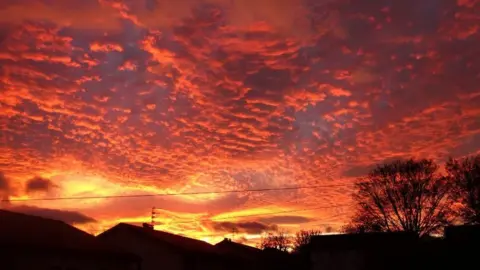 Elliot Trela
Elliot TrelaA remarkable sunset could be seen in parts of the UK on Tuesday and Wednesday evening.
The folklore warning is clear on what this should mean - "red sky at night, shepherd's delight". But why do they happen?
Let us explain, with the aid of some of the spectacular photos you took of the weather phenomenon.
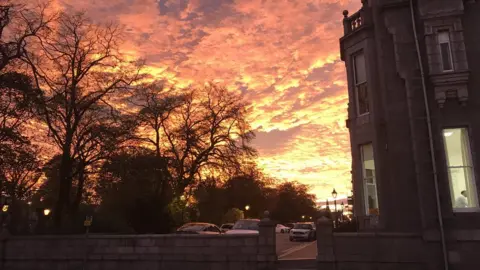 Fraser Mackie
Fraser MackieDeep red sunsets are often associated with dry, settled weather and high pressure - a deep red sunset may indicate a prolonged spell of good weather.
But the key sign is in the red sky around the sun - and not the colour of the cloud.
 David Gilroy
David GilroyBut why is it red?
It all comes down to a phenomenon known as Rayleigh scattering, of course.
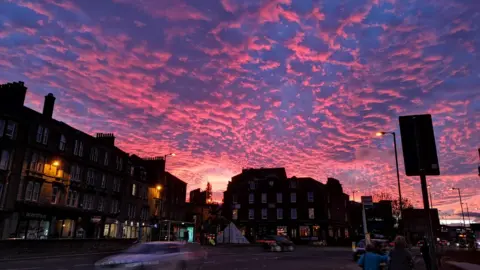 Wendy Nicholson
Wendy NicholsonRayleigh scattering is when the components and particulates in the atmosphere (such as oxygen, nitrogen and dust) become more dense.
This scatters the different colours of light that make up sunlight.
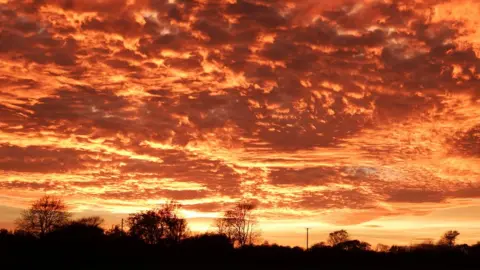 Jack Oram
Jack OramAs the sun sets, its light has to travel through a greater depth of atmosphere.
The atmosphere tends to scatter the blue and green light to the greatest extent, but not the red.
So the sun appears redder towards sunset.
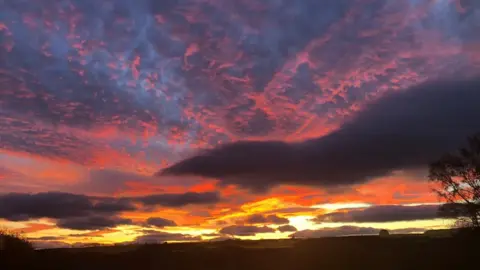 Sandy Bushby
Sandy BushbyAny dust particles present also tend to scatter the red frequencies of light towards us, which further enhances the redness.
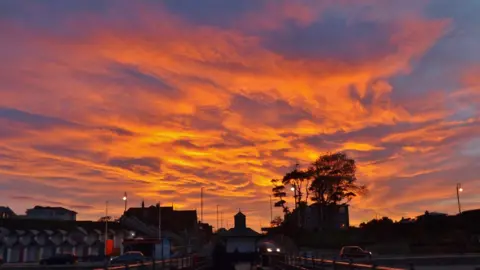 Robin Boultwood
Robin BoultwoodSo the combination of blue light being scattered away from us, and red light being scattered towards us, causes the skies to sometimes appear red.
The past two days have seen more dust particles in the atmosphere - leading to the spectacular scenes.
By Tom Gerken, BBC UGC & Social News with help from Steve Cleaton, BBC Weather Forecaster
